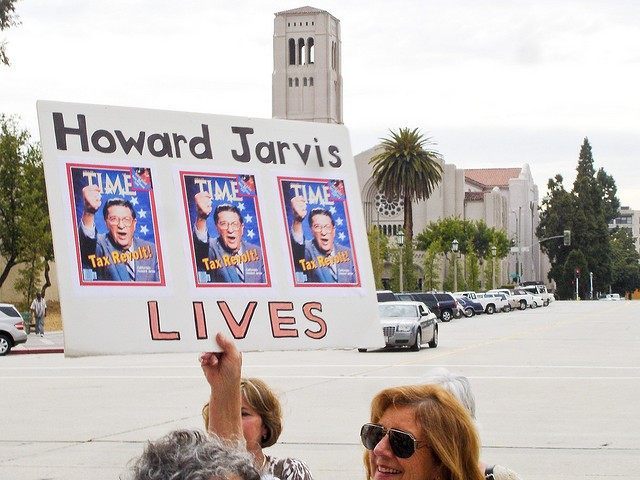A new California “split-roll” ballot initiative cranking up to qualify for the November 2018 elections would end Proposition 13 protection for commercial property owners as a first step to attacking all property taxpayer protections.
The proposed ballot initiative’s supporters include the League of Women Voters, Alliance San Diego, Evolve, California Calls, and PICO California. They claim their effort will continue Proposition 13’s protections for residential and small business, while raising $9 billion a year from fat-cat owners of commercial and industrial property every one to five years, like every other state.
But by first carving off commercial owners’ funding to protect Prop 13, Democrats know they can later dump Prop 13 as a whole and reap $30 billion a year more in taxes.
Breitbart News reported last month that Gov. Jerry Brown blamed California’s coming insolvency on Proposition 13, which was passed in retaliation for tax and spend policies during his first term in the late 1970s. Brown warned the state could lose $55 billion in revenue during the next “moderate recession.”
The real forces behind the attack on Prop 13 are the Democrat politicians and their public-sector union allies, who see California’s fiscal constraints as an existential risk, given that California’s annual spending budget for general government payroll and benefits is only $10 billion.
When the Democrat super-majority in the California legislature in 2015 wanted to put an amendment on the state ballot to eliminate Prop 13 restrictions for all commercial and industrial property, Gov. Brown remained quiet. But with split-roll polling never receiving over 50 percent support, Brown told real estate interests last year that Prop 13 was California’s “political third rail” and he would not support any vote to change the law.
However, with Brown a political lame duck counting down the days in his last year in office, split-roll social justice advocates are racing to put the initiative on the ballot. They are selling their split-roll story: that residential home owners, home renters, apartment owners, and apartment renters will not be impacted.
The “social justice warrior” argument for split-roll is that the property tax allocation was about even between commercial and residential property tax payments before Prop 13 passed. But homeowners pay 72 percent of taxes, while commercial owners pays 28 percent.
As a result, the left contends that this corporate loophole creates a tax burden that forces working families to pay higher taxes. The left argues that eight percent of commercial properties now keep 77 percent of all the tax savings from Prop 13. Split-roll supporters claim the $11 billion a year in lost tax revenue explains why California schools that ranked in the top ten nationally in per pupil spending before Prop 13 are now in the bottom ten.
The main reasons polling has shown that voters oppose split-roll approaches to Prop 13 reform because of concerns that higher taxes will be passed on by businesses to consumers, and fears by homeowners that there will be a second tweak to eliminate all Prop 13 taxpayer protections.

COMMENTS
Please let us know if you're having issues with commenting.